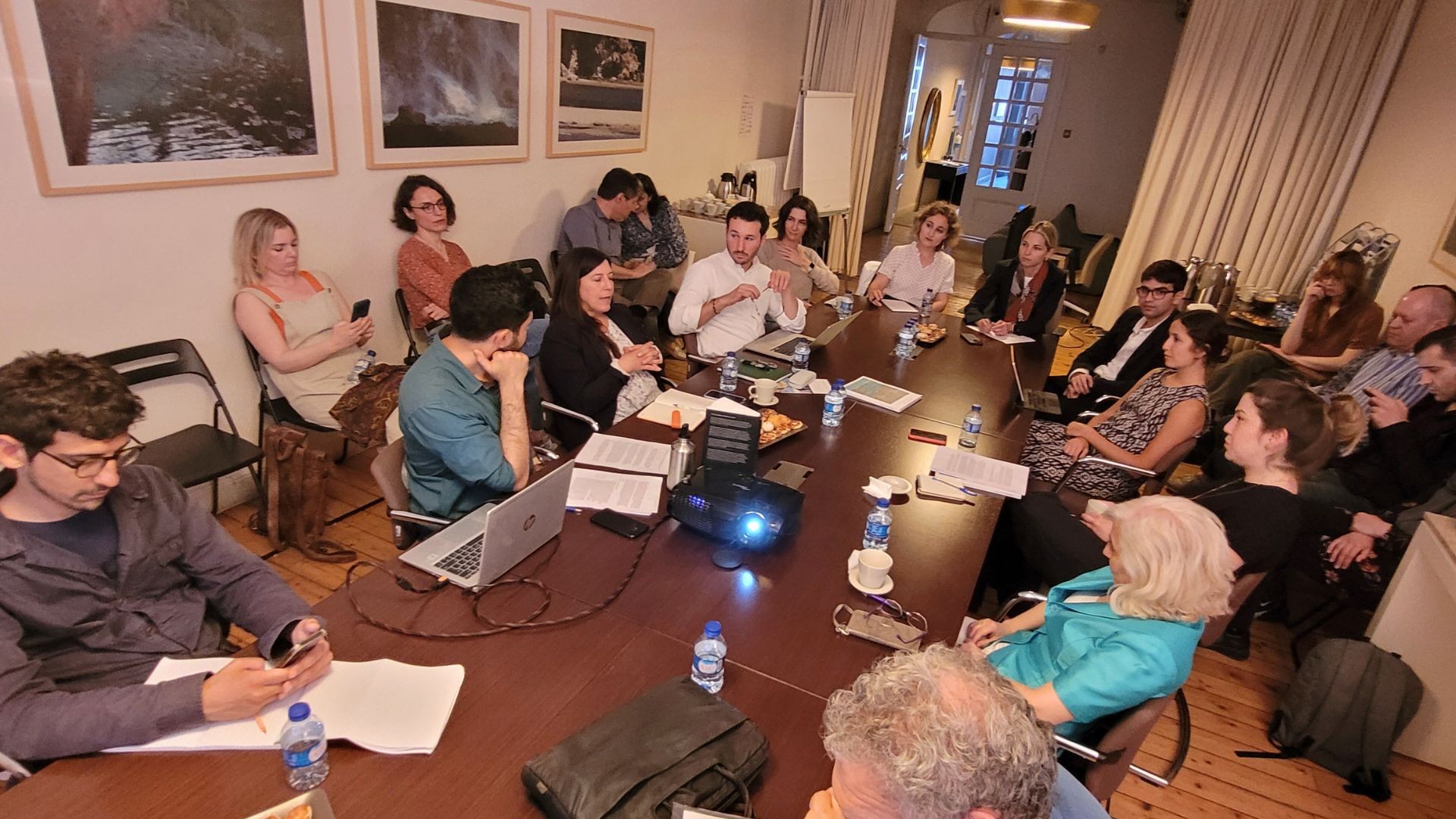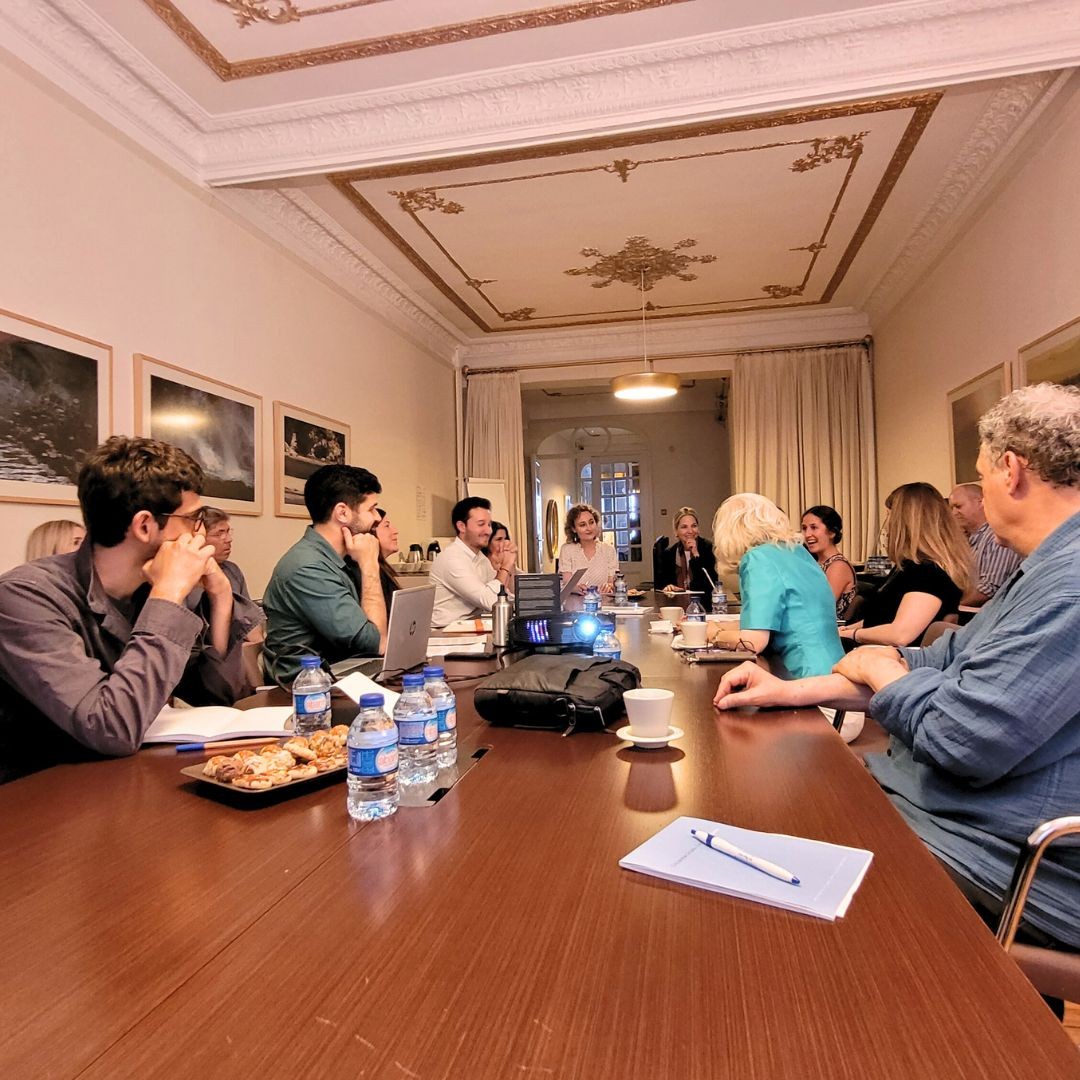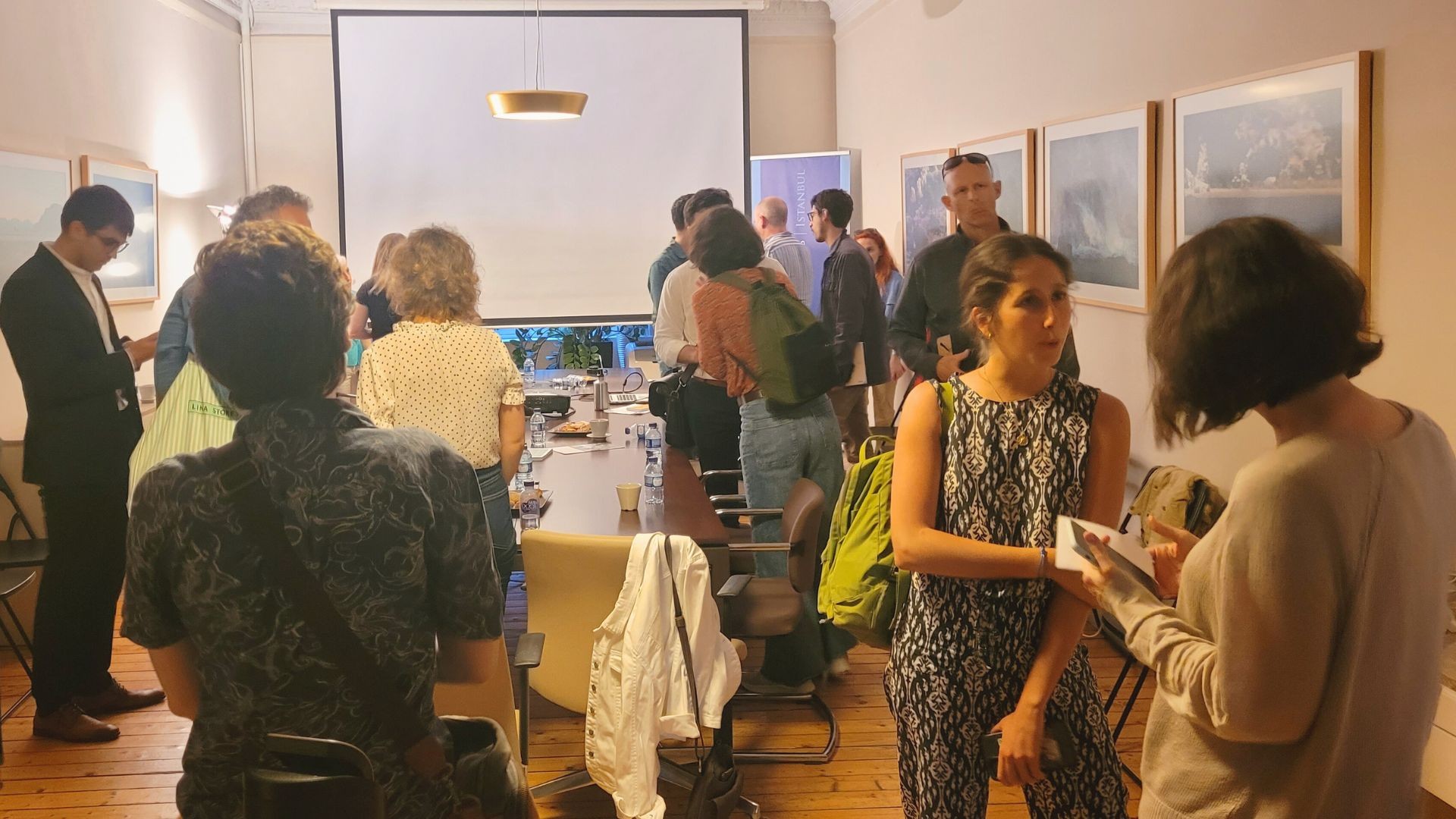From Earthquakes to Elections: International Media Coverage of Turkey in 2023
Istanbul-based journalists engaged in a thought-provoking conversation about Turkey's eventful year of 2023.

Columbia Global Centers | Istanbul recently hosted a gathering of seasoned Istanbul-based journalists, who engaged in a thought-provoking conversation about Turkey's eventful year of 2023. The journalists—Ayla Jean Yackley, Elif İnce, and Fariba Nawa—shared their experiences and shed light on the collaborative nature of news production, challenges faced by contributors to international media, the pursuit of untold stories, and transformative shifts in journalism.
Noah Amir Arjomand, the author of Fixing Stories: Local Newsmaking and International Media in Turkey and Syria, exploring the behind-the-scenes contributors to international media, moderated the conversation. Together, the speakers unraveled the intricate tapestry of journalism in the region and discussed the evolving landscape that shapes the narratives we consume.
During the conversation, Elif İnce discussed her contribution to a powerful New York Times article that revealed the tragic aftermath of an earthquake in Hatay, Turkey. She described the arduous investigative process and the obstacles faced, including corruption, regulatory failures, and incomplete inspection documents. The team's investigation uncovered instances of bribery and exposed building code violations, but the revelations received less attention than other developments. Elif emphasized the role of social media platforms in identifying witnesses and leads. Elif expressed her reservations about the term "fixer" and delved into her experiences as a local journalist, grappling with challenges, frustrations, and a perceived sense of unfair treatment. She raised thought-provoking questions about the blurred boundaries of a "local journalist" and the dynamics of recognition and roles within the industry.

Ayla Jean Yackley shared her experiences as a journalist in Turkey, discussing the advantages and challenges of being perceived as a foreign journalist. She highlighted the importance of language immersion and understanding the local stories. Ayla also noted a recent shift where individuals have become more hesitant to speak out due to fear of repercussions. She emphasized the responsibility of journalists to share important stories and perspectives while navigating perceptions and biases. However, she also acknowledged the barriers that need to be overcome, as some individuals initially perceive her as an outsider attempting to undermine the nation. Nevertheless, Ayla remains resolute in her commitment to her work and the responsibility she bears to share important stories and perspectives with readers across the globe.
Fariba Nawa discussed her identity as an Afghan American journalist in Turkey, emphasizing how others define her identity regardless of her personal identification. She highlighted the shifting perception of Afghan refugees in Turkey and the challenges of racism. Fariba acknowledged the emotional toll of reporting on Afghanistan and the complexities of being a foreign journalist in Turkey. As a seasoned journalist, Fariba acknowledged developing a thick skin and the ability to remain resilient in the face of offensive remarks. However, she revealed that she has moved away from writing about Afghanistan due to the emotional toll and personal nature of the topic. Despite this shift, Fariba wrote a difficult and personal piece about the earthquake and its impact on her friend's family, highlighting the profound impact of reporting from conflict regions.

Taking Kareem Shaheen’s critique of international news media's coverage of Turkey's political landscape as a departure point, Noah Arjomand noted biases and narrow perspectives. The discussion emphasized the importance of journalists reflecting on their biases, seeking multiple viewpoints, and collaborating with local journalists for more comprehensive coverage. The conversation also touched on challenges faced by journalists in Turkey, limited access to government officials, declining responsiveness to media inquiries, and media polarization. In navigating biases and blind spots within international news coverage, Noah noted, journalists face challenges in pushing back against editorial decisions. Building relationships based on trust, providing evidence-based arguments, and presenting diverse perspectives can help address biases or gaps in coverage. By remaining vigilant, journalists can contribute to a more nuanced and comprehensive portrayal of Turkey's political landscape and other complex contexts.
Overall, the gathering showcased the insights and experiences of these journalists, highlighting the collaborative nature of news production and the evolving landscape of journalism. Their dedication to impartiality and pursuit of truth serves as a guiding force in responsible reporting and fostering understanding across borders.